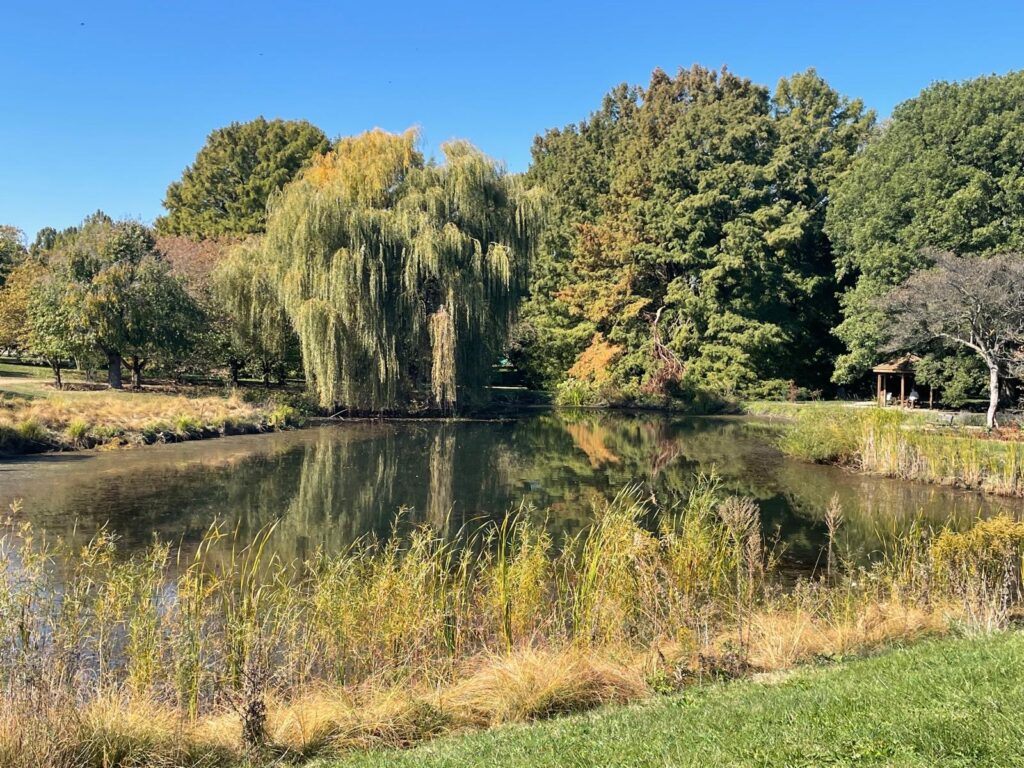How far do I stray from all that's true
Just when will I discern
This brand of love I have for you
That everywhere I turn
I find the good and bad I do
And everything I learn
It brings me back to you, to you!
All brings me back to You!
On a recent overseas trip, I found myself browsing through the in-flight movie list. One film that caught my fancy was called The Prestige. It had a compelling cast and a synopsis that drew me in right away.
The Film
The opening scene of The Prestige features a magician’s assistant – a magician in his own right – demonstrating to a little girl the three parts of any magic act. You can look it up, but I’ll state it here as plainly as possible. The first part is called The Pledge. This is the subject matter of the act and really involves the magician presenting something material to the audience. The second part is called The Turn. This is a performance wherein the magician does something remarkable that generally shocks or intrigues the audience. The third part is called The Prestige. This is the twist that brings resolution but more importantly, delivers the wow factor of the entire act.
From there, the story unfolds. Two men in London, top career magicians of the late nineteenth century, become obsessed with outdoing each other. They were once colleagues. But a tragic on-stage accident kills the wife of one and drives a wedge between them, firing up a bitter rivalry that feeds the rest of the story. A teleportation trick by one of them during the second act ignites the beginning of the end.
The film exposes the ugly underbelly of performative magic and magicians – deception, duplicity, treachery, animal cruelty – all part of this heinous world. The characters grapple with their humanity or lack of it. The production is an excellent tragedy.
But what stood out for me in the story – and the characters executed this beautifully – was the high degree of intelligence possessed by this caliber of magicians.
Here is a short list of their attributes, which may read more like a tribute of sorts, but that is not the intent here.
- They have deep knowledge of their craft
- They are fiercely competitive and study their competition relentlessly
- They are alchemists and functional physicists
- They excel at sleight of hand
- They are agile, physically and mentally
- They are quick-thinking
- They are observant, very observant
- They are meticulous in their planning
- They are fearless, risk-takers
- They are obsessive with their craft and committed to improving it
- They are manipulative
- They are well informed and technologically savvy
- They possess stage presence
- They know how to read their audience
- They distract with skill, but are largely undistractable themselves
I enjoyed the movie and left it with that familiar guilty pleasure that made me wish I could get back the two hours I lost. But all in all, the film was impressive.
It was a month later that I really started to think about it.
Musa and the Magicians
An old tafsir session I attended at Darul Qasim College came alive from the recesses of my memory, some fifteen years ago. But the words and meanings of Shaykh Amin were still bouncing around in my head. Shaykh Amin’s expositions on Tawhīd (the Oneness of God) are equal parts insightful and exhausting. He doesn’t just give you words, he paints in scenarios, then ties it all neatly together into a relatable package of lived experiences. I paraphrase below from what I heard all those years ago, with regards to the magicians who challenged Musa.
“Don’t think these were just your regular magicians that you get today. These were the best of the best. Fir’awn sent delegations far and wide across his kingdom to hand pick the top magicians.”
When these men arrived in Egypt, the first thing they most likely did was figure out their competition. They would not have trusted their assistants to do this. They would have individually, or as a group, followed Musa around. They would have studied him and his interactions with people. They would have asked people about him. They may have even staged a run-in with him on the street to force a conversation. They would not have left any stone unturned to help build a mental graph of what this man was capable of, of what informed his thought processes. In the course of their investigations, they would have also learned of his mission and his message. They observed his staff, ever by his side.
Their mission had been spelled out for them – to deliver a performance that would outperform Musa. But note that the magicians had not themselves seen Musa and his staff in action. All they knew was what had been described to them.
They must have visited the field where the competition would be conducted. They may even have rigged it for themselves.
On the day of the feast, hordes of people gathered around Musa and the magicians. I looked up the verses from Surah TāHā. A popular translation of verses 65 through 70 follows.
V. 65 They said, “O Moses! Either you cast, or let us be the first to cast.”
This was their pledge – Musa’s staff versus their staffs and ropes. All simple objects that the audience could look at, hold, examine. This shows their level of preparedness. They had thought through all the possible scenarios and contrived a plan for each. They had a Plan B and maybe even a Plan C.
V. 66 Moses responded, “No, you go first.” And suddenly their ropes and staffs appeared to him—by their magic—to be slithering.
This was their turn. This is when their craft and skill was on full display. I also think their prestige, i.e. the wow factor, has been left to our imagination because Allah the Creator of all things including the abilities of magicians could not be concerned with drawing attention to their mundane preoccupations. But I can imagine the crowds watching the snakes of variegated colors, slithering about, and some of them possibly rising into the third dimension, and through sleight-of-hand and the practiced administration of certain chemicals, made the ends glow like serpentine eyes. I suppose what I am attempting to say here is that we must appreciate how thoroughly impressive the show of the magicians must have been, and how taken up the crowds and Fir’awn must have been by all of it. Keep in mind Fir’awn’s purpose in all of this – to show everyone that Musa’s “trick” was not really all that hard to conjure if the conjurers possessed the skills for it.
V.67 So Moses concealed fear within himself.
This is proof that their prestige was impressive to Musa as well. It must have been a formidable performance. But Musa was no magician and he was simply doing his Lord’s bidding. Based on his own knowledge of what his staff could do, he felt he had been challenged duly.
V. 68 We reassured ˹him˺, “Do not fear! It is certainly you who will prevail.
This sufficed for Musa. But the Divine prestige was yet to be revealed to the magicians.
V. 69 Cast what is in your right hand, and it will swallow up what they have made, for what they have made is no more than a magic trick. And magicians can never succeed wherever they go.
The Divine prestige is revealed. The turn is impressive but the prestige is stunning. The staffs and ropes that were cast by the magicians have been devoured by Musa’s serpent.
V. 70 So the magicians fell down in prostration, declaring, “We believe in the Lord of Aaron and Moses.”
This is remarkable. All those aforementioned attributes must be taken into account to fully appreciate the response of these men. Of all magicians in the lands, they were the creme de la creme. They knew magic. They knew the physics and the chemistry and the many cutting edge techniques and apparatuses in use in their industry. And even after allowing that which they may not have been privy to, they knew that what Musa had brought was above magic. They already had an idea of who Musa was. They had been prepared for what they were about to see – a staff turn into a serpent – but they weren’t ready for it to invade their senses and overwhelm them. But they were highly intelligent, and as is with Islam, a paradox was at play. It was their superior intelligence that brought them to recognize their own inferiority before a Divine being for they well knew Musa had never claimed divinity. He was a messenger.
And then, as if to honor these men, Allah serves another paradox. How can these men be given the higher stations of Jannah reserved for the shuhadā and the siddīqīn, the gritty confirmers of the Truth that Allah is, the Truth of His Oneness, of his Power. To that end, Allah allows the Pharaoh’s punishment to come to bear – a pair of their opposite extremities was amputated and they were crucified by the remaining limbs. They are bestowed with the tawfīq to choose submission and reject the stubborn disbelief of their liege, the Pharaoh. A grotesque end, a painful torment and debasement in this world becomes a means to beauty, serenity and exaltation in the eternal.
AsSalaamu ‘alaa Musa wa Haroon.
TāHā
Arabic was the magical currency of the Arabs. The Arabs of the Hejaz spoke a rich dialect. They composed verse with ease. Their sophisticated thought and language was a thing of legend. It was what they treasured the most. Their poets were the magicians of their time. And the pledge of every performance was the language of Arabic. The turn and prestige varied, always leaving the audience filled with admiration of what one of their brethren had just composed and recited.
We may attempt to draw a line from the story of Musa and the magicians to the incident in which the last Messenger Muhammad (Allah’s prayers and peace be upon him) recited Surah Al-Najm before an assembly of Quraysh. Surah Al-Najm was the Divine pledge. Their rapt attention was the turn. And the involuntary sujūd that every single member of the audience found himself in was the Divine prestige.
All who were present prostrated but one old man. But even he had to rub his forehead with dirt.
Allahumma Salli ‘ala Muhammad.


